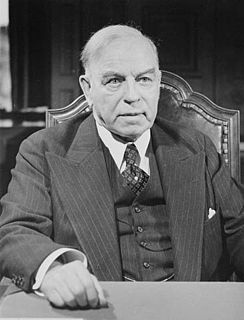A Quote by David Ricardo
There can be no greater error then in supposing that capital is increased by non-consumption.
Quote Topics
Related Quotes
I shall argue that it is the capital stock from which we derive satisfaction, not from the additions to it (production) or the subtractions from it (consumption): that consumption, far from being a desideratum, is a deplorable property of the capital stock which necessitates the equally deplorable activity of production: and that the objective of economic policy should not be to maximize consumption or production, but rather to minimize it, i.e. to enable us to maintain our capital stock with as little consumption or production as possible.
If, for example, each of us had the same share of capital in the national total capital, then if the share of capital goes up it's not a problem, because you get as much as I do. The problem is that capital in capitalist countries is very heavily concentrated, especially financial capital. So then if the share of income from that source goes up, that actually exacerbates inequality.
There exists a black kingdom which the eyes of man avoid because its landscape fails signally to flatter them. This darkness, which he imagines he can dispense with in describing the light, is error with its unknown characteristics. Error is certainty's constant companion. Error is the corollary of evidence. And anything said about truth may equally well be said about error: the delusion will be no greater.
When things get bad enough, then something happens to correct the course. And it's for that reason that I speak about evolution as an error-making and an error-correcting process. And if we can be ever so much better - ever so much slightly better - at error correcting than at error making, then we'll make it.
































